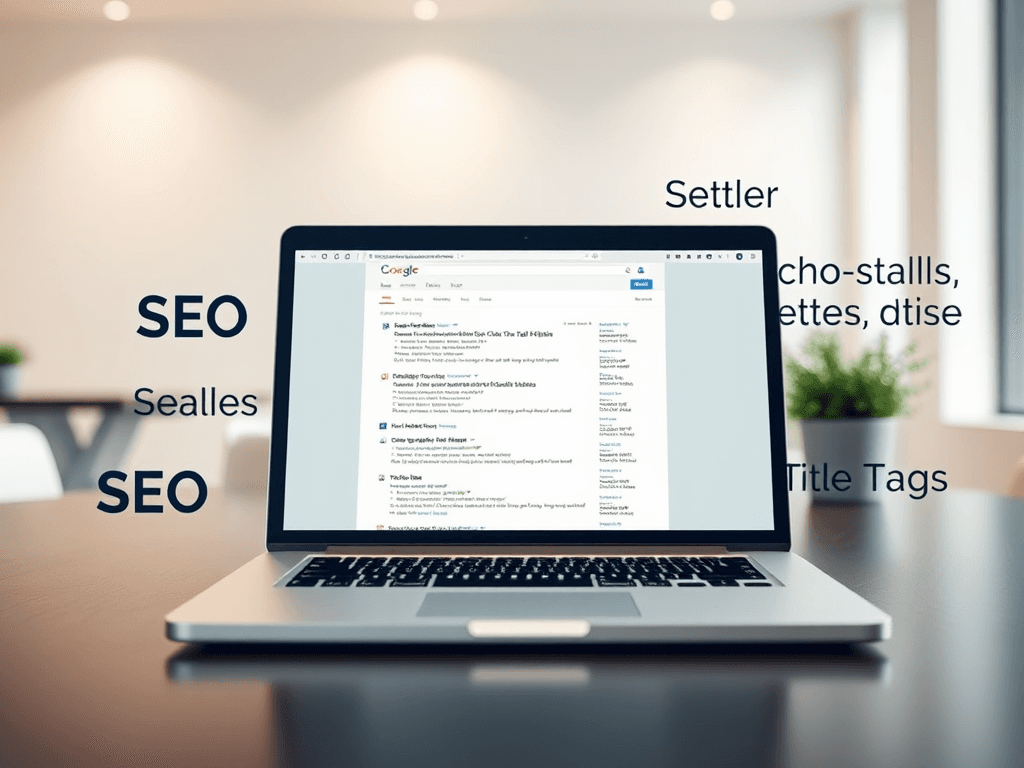Why is a Title Meta Tag Important for SEO?
By RG team · 8 min read
Last Updated on June 6, 2023
Wait a minute...

Introduction

Photo by Myriam Jessier on Unsplash
As a content creator, you know that Search Engine Optimization (SEO) is critical for getting your content found by interested readers. One vital element in optimizing your website for search engines is the title meta tag. Title meta tags are HTML elements that summarize the main topic of your web page and are displayed in search engine result pages (SERPs) and browser tabs. They are often called meta titles, title tags, or SEO titles. Writing an effective title meta tag is crucial for helping search engines understand what your page is about and improving your chances of ranking higher in search results.
In this article, we'll cover what title meta tags are, why they're important for SEO, and how to write them effectively. We'll also go over common mistakes to avoid and provide best practices for writing effective meta descriptions to improve your pages' click-through rates. By the end of this article, you'll have a solid understanding of how to optimize your title meta tags for better search engine visibility and get your content found by interested readers. So, let's dive into it!
What is a Title Meta Tag?
A title meta tag is an HTML element that summarizes the content on a web page. It is located in the header of the HTML code and is one of the most important on-page SEO elements. Title tags give both search engines and users a quick and concise summary of what a web page is about.
When someone types a query into a search engine, the search engine's algorithm uses various factors to determine which results to show. One of the primary factors used is the relevance of the page to the query term. Every web page's title tag is given significant importance in determining relevancy. Therefore, search engines use title tags as one of the essential factors in ranking pages for search results.
Writing an effective and descriptive title meta tag that summarizes your page's content is crucial in helping search engines understand what your page is about and what users can expect to find on it. As a result, search engines display your title tag prominently, making it the first thing people see when your page appears in the search results. If your title tag adequately summarizes your content, it can increase your site's click-through rates from search engine users.
Why is a Title Meta Tag Important for SEO?
Title tags are one of the most important on-page SEO elements. They're used by search engines to understand what a page is about and match it to a user's search query. When a search engine is crawling your site, it scans your title tag to understand the topic and purpose of the page.
Search engines use the title tag in several ways. First, they display it in the search engine results pages (SERPs) as a clickable link that helps the users decide if a page is relevant to their search. Second, when a page is shared on social media or other websites, the title tag is displayed as a preview of the content users will find if they click the link.
An effective title tag can also increase engagement with your website. A well-written and descriptive title tag can entice a user to click on the link and visit your site. If your title tag clearly matches their search intent, the user is more likely to stick around and view other parts of your site.
Therefore, it's essential to write a title tag that accurately and concisely summarizes the content of your page while also aligning with the user's search intent. A well-written title tag can help improve your ranking on search engine results pages, increase website traffic, and ultimately help you achieve your business goals.
Best Practices for Writing Title Meta Tags
Writing a good title tag is crucial for SEO. An effective and descriptive title tag can help search engines understand what your page is about and draw in users who are searching for information on that topic. However, there are a few best practices to keep in mind when crafting your title tag:
Keep It Concise and Accurate
Your title tag should accurately and concisely summarize the information on the page. It's best to keep the title tag between 50-60 characters, including spaces. This is the maximum length that search engines will display in the SERPs. If your title tag is too long, it could get truncated, leading to a misunderstanding of your page's content.
Incorporate Target Keywords
Include target keywords in your title tag that reflect the content of your page and match the user's search intent. However, avoid keyword stuffing, which refers to repeating a single keyword multiple times in a title tag just to manipulate search engine rankings. Not only will keyword stuffing not work, but it can also hurt your rankings, as search engines typically penalize websites that try to cheat their algorithms.
Don't Duplicate Title Tags
Ensure that each page has a unique and descriptive title tag that accurately represents the information on the page. Having multiple pages with the same title tag can confuse both users and search engines, leading to a reduction in click-through rates or even penalties from search engines.
Use Brand Names Wisely
If your website has a recognizable brand name, consider incorporating it into your title tag. This can help establish a brand identity and improve recognition among users. However, don't overuse brand names, as searches may not always be searching for a specific brand. For pages that are not brand-related, avoid adding a brand name if it's not relevant to the page's content.
In summary, writing a good title tag requires you to be accurate, concise, and appropriately represent the content on your page. Incorporating target keywords and brand names can help improve your SEO efforts, but avoid duplicating title tags and keyword stuffing. These best practices can help you write effective title meta tags that attract users and help you rank higher in search engine results pages.
Common Mistakes to Avoid
While there are best practices to follow when it comes to writing title meta tags, there are also a few common mistakes to avoid.
Overstuffing with Keywords
As mentioned earlier, keyword stuffing is the practice of using a keyword too many times in a title tag to manipulate search engine rankings artificially. Not only does this practice not work, but it can also hurt your rankings. Write your title tag for humans, not search engines, by using your primary keyword naturally.
Writing for Search Engines Only
While title meta tags are essential for SEO, don't stuff them with keywords or write them solely for search engines. They need to be descriptive and represent the content on your page accurately. When writing title tags, think about what would make a user want to click on your link? Does your title accurately reflect the page's content? Keep the user in mind when crafting a title tag.
Leaving Them Blank
Leaving the title tag blank is a common mistake. This can hurt your website's SEO, as search engines have to guess the content of your page, leading to lower click-through rates. Make sure to fill out a unique and descriptive title tag for every web page on your site.
In summary, these mistakes can hurt your website's SEO, leading to lower click-through rates and lost traffic. Avoid stuffing your title tags with keywords, writing them solely for search engines, or leaving them blank. By following the best practices and avoiding common mistakes, you can write effective title meta tags that improve your website's visibility and click-through rates.
How to Write Effective Meta Descriptions
While title meta tags are essential for SEO, meta descriptions are equally important for improving your website's visibility and click-through rates. A well-written meta description provides users with an accurate and compelling summary of the content on your page, which can increase the likelihood of clicks from search engine results pages.
When crafting your meta description, make sure to keep it under 155 characters, use active voice, and include relevant keywords. Avoid copying and pasting the same meta description across multiple pages, as this can hurt your SEO. Instead, take the time to write a unique and informative meta description for each page on your site. By following these tips, you can create effective meta descriptions that improve your website's visibility and attract more traffic.
Conclusion
In conclusion, writing effective title meta tags and meta descriptions is crucial for improving your website's SEO and attracting more traffic. Avoid common mistakes such as keyword stuffing and leaving your tags blank, and take the time to craft unique and compelling descriptions for each page on your site. Following these best practices will lead to higher click-through rates and increased visibility in search engine results. By prioritizing your title tags and meta descriptions, you can enhance your website's online presence and achieve your business goals.



